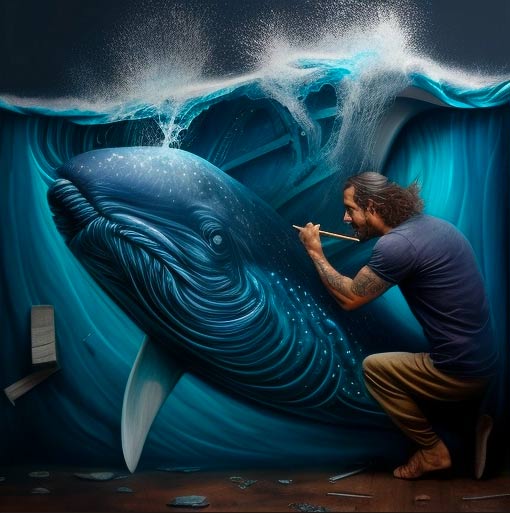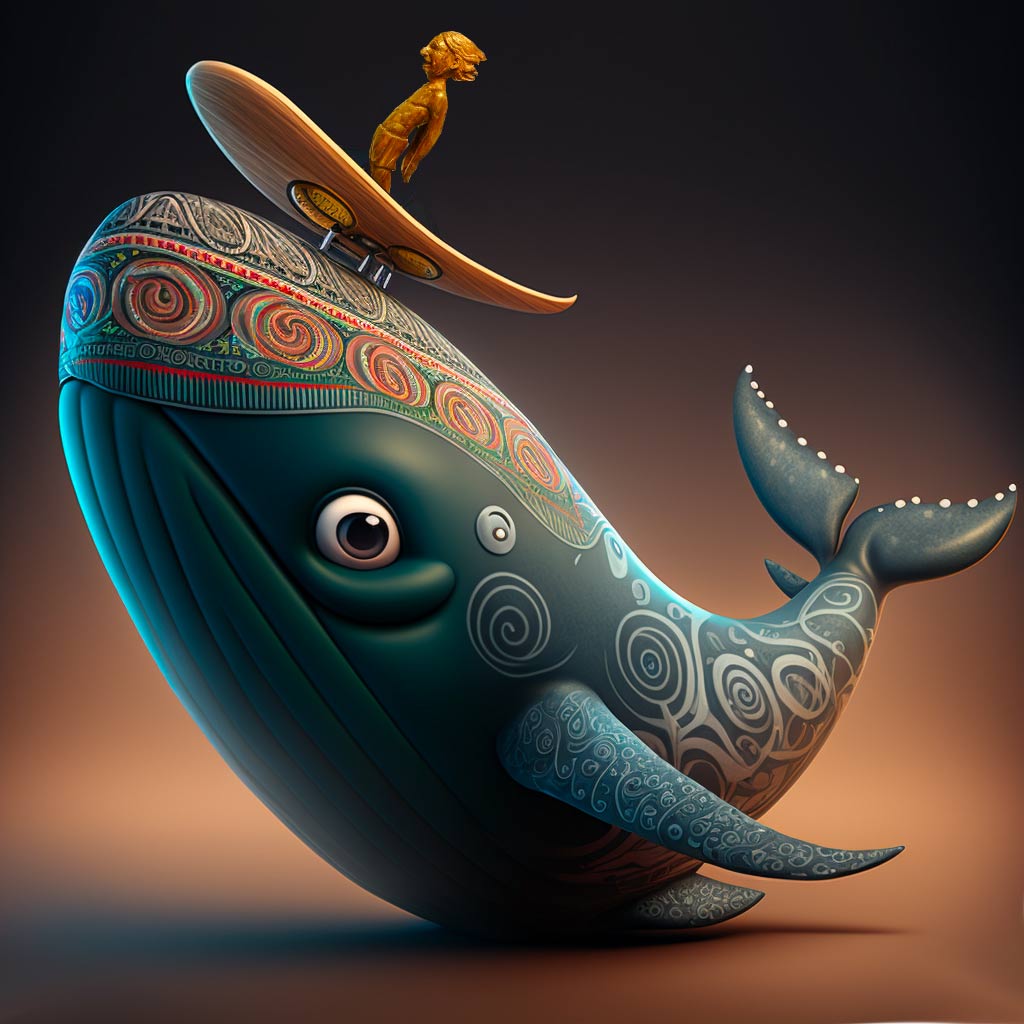Whales have played a significant role in Hawaiian culture for centuries. According to Hawaiian tradition, whales were considered sacred animals and were believed to be the reincarnated spirits of deceased ancestors. They were also seen as powerful protectors of the community and were often called upon for help in times of need.
In Hawaiian mythology, the god of the sea, Kane, was believed to have created the first whales. Kane was also said to have sent the whales to the Hawaiian Islands as a sign of his favor and to provide the Hawaiian people with a source of food and resources.

In ancient Hawaii, whaling was a highly organized and ritualized activity. Whaling was typically carried out by a specific group of men known as “kaukau ali’i”, or “royal eaters”. These men were considered to be the elite of Hawaiian society and were responsible for providing the community with a steady supply of food and resources from the sea.
In addition to providing food and resources, whales also played an important role in Hawaiian ceremonies and rituals. The bones of the whale were used to create tools, weapons, and religious objects, and their teeth were used as a form of currency. Whaling was also an important rite of passage for Hawaiian boys, who were required to participate in a whaling expedition as a part of their coming of age ceremonies.
Despite their importance in Hawaiian culture, the population of whales in Hawaii has greatly declined in recent years due to commercial whaling. Today, the hunting of whales is illegal in Hawaii, and efforts are being made to protect and conserve these magnificent creatures.
Hawaiian culture continues to honor the significance of whales through various cultural practices, such as the annual Makahiki Festival, which celebrates the arrival of the humpback whales to Hawaii. The festival includes traditional Hawaiian games, dance and music, and serves as a reminder of the important relationship between Hawaiian culture and the whales. In Hawaii, the Humpback whale is also protected by the Marine Mammal Protection Act and the Endangered Species Act, making it illegal to hunt or harm them.

Whales have also played an important role in Polynesian tattooing. Whaling was a traditional practice in many Polynesian cultures, and the whale was often seen as a symbol of strength, power, and protection. As such, the image of the whale is often incorporated into traditional Polynesian tattoos as a symbol of the wearer’s connection to the sea and their culture. The whale’s tail, in particular, is a common image in Polynesian tattoos, as it is believed to provide the wearer with good luck and safe travels on the ocean. Whales also symbolize family, tradition, and community in many Polynesian cultures. They are often tattooed as a way of honoring their ancestors and paying respect to their cultural heritage.
Would you like to take an Oahu Whale tour?
Book our Oahu Whale Watching Tour!!












